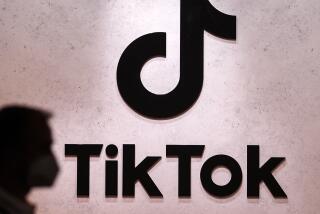House Votes Unanimously to Permanently Ban Internet Access Taxes
- Share via
WASHINGTON — A unanimous House voted Wednesday to permanently ban all taxes on Internet access and require nine states to repeal existing access taxes that together raise as much as $120 million a year.
The measure would cement a federal ban on taxes for Internet access that was scheduled to expire in November. It was backed by technology firms such as Microsoft Corp. and AOL Time Warner Inc. seeking to promote online connections and bitterly opposed by states such as Texas that levy taxes on Internet access. California does not impose such taxes.
The bill does not address the related issue of whether billions of dollars worth of goods purchased over the Internet should be exempt from taxation.
The House measure awaits action in the Senate, where lawmakers are expected to vote within weeks on a similar bill that would give the nine states that impose Internet taxes three years to phase them out.
“The benefits to our economy are manifest,” said the bill’s sponsor, Rep. Christopher Cox (R-Newport Beach), in an interview. “Adding new taxes to Internet access [or] taxing e-mails would be a profoundly bad idea for our country.”
Wednesday’s vote capped a fierce behind-the-scenes battle over how lawmakers should balance the rights of states and local jurisdictions to levy taxes against the interests of companies that take in billions of dollars in revenue linking businesses and consumers to the Internet.
Cities, counties and states, already strapped by an anemic economy and reduced federal aid, had criticized the House measure because they feared the loss of potential tax revenue. They noted that they have long imposed taxes on other telecommunications services, such as calls made over local and wireless phone networks.
But the Bush administration sided with proponents of the legislation.
“Government should support e-commerce and Internet usage and availability,” the White House said in a statement, “and not discourage it through new administrative barriers or taxes.”
A key high-technology trade group also voiced its support.
“While states may see access taxes as a near-term source of revenue, the long-term benefits of allowing the Internet to prosper unhindered outweigh these arguments,” said Dave McCurdy, president of the Electronic Industries Alliance.
The tax moratorium applies to all forms of Internet access, whether pokey dial-up connections via copper phone lines or high-speed connections using coaxial or fiber-optic cables. High-speed, or broadband, services can support a host of telecommunications services -- such as voice calls -- that are routinely taxed by many states.
In Los Angeles, residents are charged a 5% user tax, and the state levies a separate emergency telephone surcharge on in-state toll calls.
Citing such anomalies, Rep. Gene Green (D-Texas) opposed the bill on the grounds that his state would lose as much as $45 million a year in tax revenue. The National Conference of State Legislatures estimated that altogether, the nine states that collect Internet access taxes raise between $80 million and $120 million a year.
The ban does not apply to online sales taxes, which were already largely barred by a 1992 Supreme Court decision.






